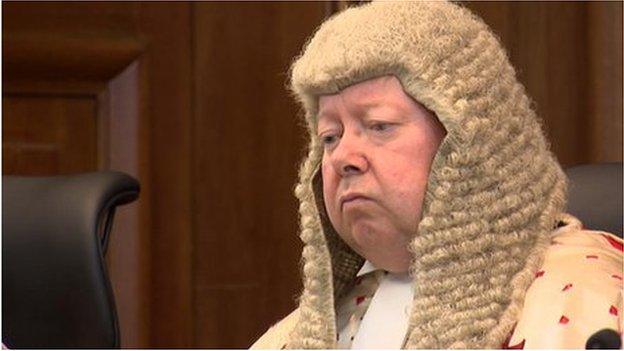Lord Carloway warns lawyers over sex crime victim questioning
- Published

Lord Carloway said that he felt that some lawyers' style of questioning did not respect the rights of the victim
A senior Scottish judge has warned lawyers over the questioning of alleged sex crime victims in high court trials.
The Lord Justice Clerk, Lord Carloway, said he was concerned that some counsel were not respecting the rights of sexual assault complainers.
Lord Carloway warned advocates that judges could stop them from indulging in "protracted or vexatious questioning" of alleged victims.
The warning came in a judgement issued at the Court of Criminal Appeal.
It referred to a rape case from last year in which defence advocate Brian McConnachie QC was representing Duncan Begg.
After a trial, Begg was jailed for eight years for raping and assaulting two women in northern Scotland during the 1990s.
Mr McConnachie had started his cross examination of one of the women who was raped by Begg with the question: "You are a wicked, deceitful, malicious, vindictive, liar?"
'Cause for concern'
Lord Carloway said that he felt that this style of questioning did not respect the rights of the victim, who cannot be named for legal reasons.
He said: "Cross examination opened with a direct salvo rather than a question, presumably designed to destabilise the witness."
The judge said it was important that a trial judge had the power "to control the nature and scope of questioning".
In his appeal court judgement, Lord Carloway refused Begg's appeal, ruling that his conviction was safe.
He also criticised the style of questioning of the woman, who was described in the judgement as being "vulnerable".
Lord Carloway said the woman spent three days giving evidence in the trial.
He said both "the manner and length of examination and cross examination give cause for concern".
The judge added defence lawyers must be able to test a witness's evidence through proper and focused cross examination, but that did not extend to insulting or intimidating a witness.
- Published1 August 2014